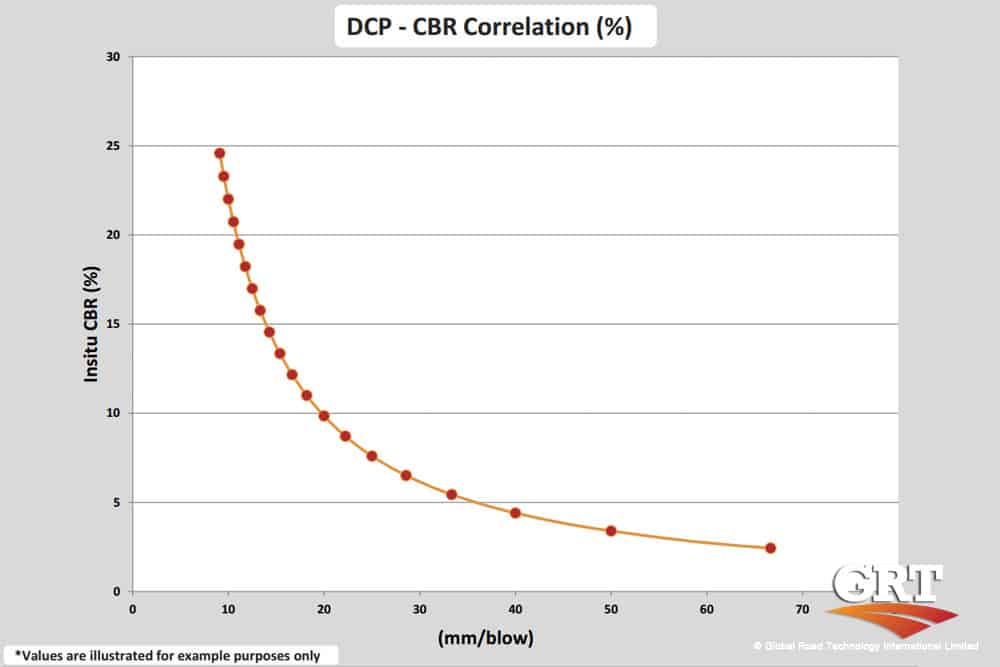
This tool is particularly beneficial to develop an understanding of the insitu support, comparatively to that of laboratory prepared sample testing which is tested at insitu moisture contents and compaction levels.
It is widely used within pavement investigations for its simplicity which involves the dropping of a nominal 9kg hammer repetitively, and measuring the vertical displacement of the calibrated rod and cone tip. The strength of the subgrade is then calibrated from empirically acquired data for materials that exhibit similar resistance to the hammer drops.
Given the nature of the test, the Dynamic Cone Penetrometer (DCP) can be used to identify bands of weaker subgrades, higher moisture contents and changes in materials and has been used historically to identify high water tables.
Although a very versatile measuring tool, the DCP has known limitations, including:
Given the cost-efficiency of undertaking Dynamic Cone Penetrometer (DCP) testing, it is a popular approach in identifying the in-service subgrade conditions, however it must be undertaken in caution and when a diligent approach is required, it is typically coupled in with applied judgment and laboratory testing to provide confidence in the outcomes.
Are environmental regulations, health and safety concerns or potential profit loss a concern right now?
For more information on Global Road Technology or (DCP) please contact GRT.
Are environmental regulations, health and safety concerns or potential profit loss a concern right now?
Contact Us Now